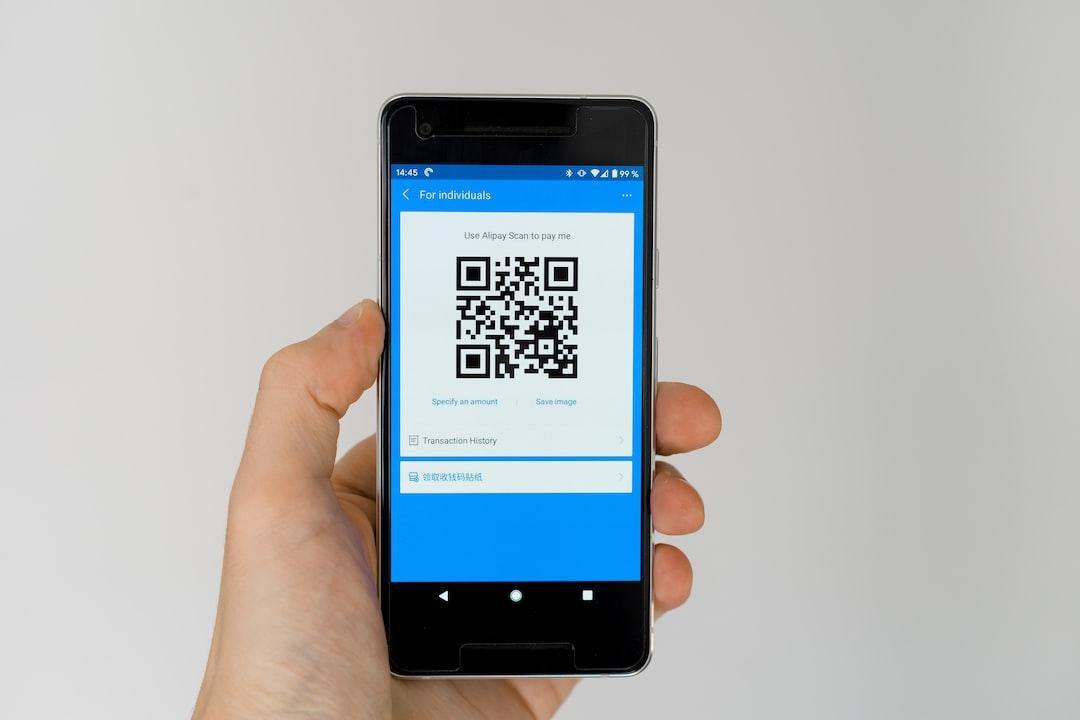This article introduces Citrea, the first ZK rollup that enhances Bitcoin’s block space capability through zero-knowledge technology. Its design aims to enable developers to build all applications on the Bitcoin chain. This article is sourced from Citrea’s article “Introducing Citrea: Bitcoin’s First ZK Rollup” and compiled by DeepChain.
Table of Contents:
The Problem of Creating New Block Space
Entering Citrea: Secure Expansion of Bitcoin
Expanding Bitcoin Security
What’s Next?
Internal Devnet Enabled
Public Testnet
Building with Citrea
Bitcoin’s scalability has long relied on moving security and demand off-chain, and outside of Bitcoin, for solutions. Citrea aims to scale across the entire Bitcoin network using zero-knowledge proofs to ensure on-chain verifiability and data availability within the Bitcoin network. This approach makes Citrea the first scaling solution that supports more complex applications without compromising Bitcoin’s security or changing its consensus rules.
Bitcoin possesses the most secure, decentralized, and censorship-resistant block space. The scalability proposals that create new block space do not inherit any of these properties of Bitcoin. These proposals or implementations only provide alternative block spaces; they do not scale the Bitcoin blockchain. Building sidechains with alternative block spaces will compete with Bitcoin in the long run and expose users’ funds to risks through insecure bridging and network structures.
The demand for Bitcoin block space is high due to its security, decentralization, and resistance to censorship. People have a strong sense of urgency for all on-chain needs in Bitcoin. In the past few months, we have observed an exponential growth in interest in Bitcoin block space, reflected in fees. Whether for payments or script transactions, people want to join the block space and are willing to pay for it. Ensuring sustainable participation in the Bitcoin network is crucial for its long-term health and security budget, but there is a trade-off: due to high costs and necessary block size limits, some transactions will inevitably be excluded. It is crucial for Bitcoin to scale to include more complex transactions without changing its core principles.
This growing interest highlights a significant problem with existing scalability proposals: they have failed to meet the growing inclusiveness demand for Bitcoin block space.
Existing scalability proposals have not scaled Bitcoin. Bitcoin has long faced the challenge of handling more transactions and supporting broader applications without compromising its security or core principles. It has proven difficult to solve this multifaceted problem comprehensively. Some projects attempt to scale Bitcoin’s payment throughput, such as the Lightning Network, while others focus on scaling the functionality of BTC assets, such as sidechains. The first scaling proposal failed to bring programmability to Bitcoin, and the latter missed a crucial point: effectively utilizing the Bitcoin blockchain itself.
In the current landscape, intrinsic demand for the Bitcoin blockchain has been redirected to separate consensus protocols, to sidechains. This approach introduces a trade-off – sacrificing Bitcoin’s security and consistency with its incentives in exchange for lower costs and more BTC use cases. Therefore, Bitcoin dominated by sidechains faces the dilemma of scaling solutions that cannot serve its long-term health and incentives in any meaningful way. While these solutions have good intentions, they do not operate on the Bitcoin blockchain, do not contribute to Bitcoin’s security, and ultimately cannot scale the Bitcoin blockchain as needed.
Again, emphasizing that the demand for Bitcoin that has moved to sidechains is no longer demand for Bitcoin.
Expanding Bitcoin’s block space requires establishing a symbiotic relationship between Bitcoin and scaling solutions. Scaling solutions must actively and efficiently utilize Bitcoin’s block space to expand the demand and increase its expressiveness and throughput without changing its protocol. Expanding Bitcoin’s block space is the only way to transact securely with Bitcoin. Any other alternative solution cannot fully inherit Bitcoin’s security.
The most secure and incentive-compatible way to expand Bitcoin’s block space is by sharding executions on-chain with verifiability and data availability. Implementing fraud proofs to easily verify Bitcoin is the most efficient way to validate executions within the block size limit on Bitcoin.
ZK Rollup creates a shard of execution and batch processes multiple transactions on that shard, verifying them on-chain using concise mathematical proofs and minimal underlying data to reconstruct the state. This approach allows ZK Rollup to efficiently utilize the underlying block space in the most verifiable way, expanding L1 with its complete security.
Citrea is the first rollup on Bitcoin that achieves stronger expressiveness and utility of Bitcoin’s block space without leaving Bitcoin. Citrea retains the demand for Bitcoin within its network and ensures that the Bitcoin network acts as the data availability and settlement layer for Citrea transactions. Citrea does not require any changes to Bitcoin’s consensus.
Citrea represents an important milestone for Bitcoin: it is the only Bitcoin-based execution layer, the first to perform ZK proof verification, and the first general-purpose L2 verification inside Bitcoin. Citrea’s mission is to propel Bitcoin into the next stage as the foundation of the world’s financial infrastructure, where developers can build anything on Bitcoin.
Citrea batch processes thousands of transactions, processes them in zkVM, and generates a concise proof of validity that asserts the correctness of execution and output data. In Bitcoin’s history, Citrea’s proof of validity is burned into the Bitcoin blockchain and locally verified. Citrea incorporates a native ZK proof verifier smart contract on Bitcoin L1 within BitVM. Unlike monolithic sidechains, Citrea creates a modular world for Bitcoin by its sharding execution, keeping settlement and data availability on-chain, on Bitcoin.

Citrea creates stable fee income for miners through data availability, extends BTC beyond Bitcoin in a trustless manner through proof of validity, and allows developers to build anything on its EVM-equivalent execution shard.
Citrea is the only execution layer on Bitcoin that settles with Bitcoin. Every transaction that occurs on Citrea is fully secured through zero-knowledge proofs and validated by Bitcoin. Citrea’s execution environment is relatively trustless compared to Bitcoin and open to all participants in the Bitcoin network.
Thus, Citrea ensures that it meets Bitcoin-equivalent data availability, resistance to censorship, and protection against reorganization.
Bitcoin as the foundation of applications: Citrea’s mission is to build a programmable liquidity layer on top of the most secure and decentralized blockchain, Bitcoin. We believe that Bitcoin’s block space must be efficiently utilized for various financial activities such as trustless purchasing, leveraging BTC, or lending BTC. Most existing meta-protocols attempting to provide these features are trusted and inefficient. Citrea is the most efficient and secure platform for building applications on Bitcoin.
Bitcoin settlement and minimal trust bidirectional pegging: In Bitcoin’s history, general L2 settlement occurred on Bitcoin for the first time, achieving the first universal trust-minimized bidirectional pegging. Before Citrea, second-layer solutions relied on the assumption of honest majority with multi-signature, such as open or closed federations. With Citrea, as long as one network participant is honest, validity proofs can be verified in Bitcoin using the BitVM paradigm. BitVM is based on fraud proofs, which means Citrea’s ZK proofs are optimistically verified on the Bitcoin network. In the future, a ZK proof verifier opcode will enable a fully trustless bidirectional anchoring mechanism.
EVM equivalence: Building with Citrea’s fully EVM-equivalent makes it easy for all EVM developers to build on Bitcoin. Citrea releases a fully EVM-equivalent Type 2 zkEVM built on RISC Zero. Citrea is not limited to a single VM in its design and benefits from its modular architecture, allowing future adoption of new VMs like WASM VM.
We are running the Citrea Devnet, an internal testnet using synthetic native BTC for critical infrastructure integration and testing. The trust-minimized bidirectional anchoring with BitVM is under active development.
Revealing the first trust-minimized bidirectional anchoring
Stay tuned for the announcement of our bridging design and the open-sourcing of our code repository in the coming weeks!
We are rapidly progressing. We have been working hard to build a robust testnet for the first rollup on Bitcoin. We look forward to sharing more information in the coming months. Please follow our social media and blog.
Our developer contact form is now open. Citrea has been incubated by Chainway Labs for over a year and is well-funded. If you are interested in collaborating with us or deploying on Citrea, please get in touch. Check out our documentation to learn about Citrea’s technology.
Making Bitcoin the foundation of the world’s finance
Citrea’s vision is to build scalable infrastructure that propels Bitcoin into its next stage as the foundation of the world’s finance. To achieve this vision, we believe it is necessary to enhance Bitcoin’s block space to include more transactions and provide more expressiveness and functionality without changing its consensus rules.
Bitcoin has the capability to become the foundation of the world’s finance with its security, decentralization, and resistance to censorship. Citrea is built upon these strengths and serves as the underlying layer for dynamic ecosystems such as DeFi, games, and NFTs. As Citrea’s modular world grows larger and more advanced, it will only become more powerful.

Related Reports
Bitcoin DeFi Stablecoin Protocol: bitSmiley Launches OG NFT “bitDisc,” How to Get the Black Card Whitelist?
Bitcoin NFT “Quantum Cat”: How Does Script Achieve Dynamic Variations Without Smart Contracts?
Survey of Ten Thousand People: 84% Believe Bitcoin Will Quickly Surpass $69,000 After Halving, 70% of Investors Plan to Increase Their Holdings.

